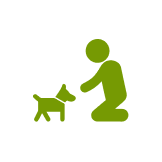In 24 cities
German Shepherds can be suitable for first-time owners committed to providing the necessary training, socialisation, and exercise. However, they require consistent leadership and a dedicated owner to meet their exercise and mental stimulation needs.




























































































































































































































